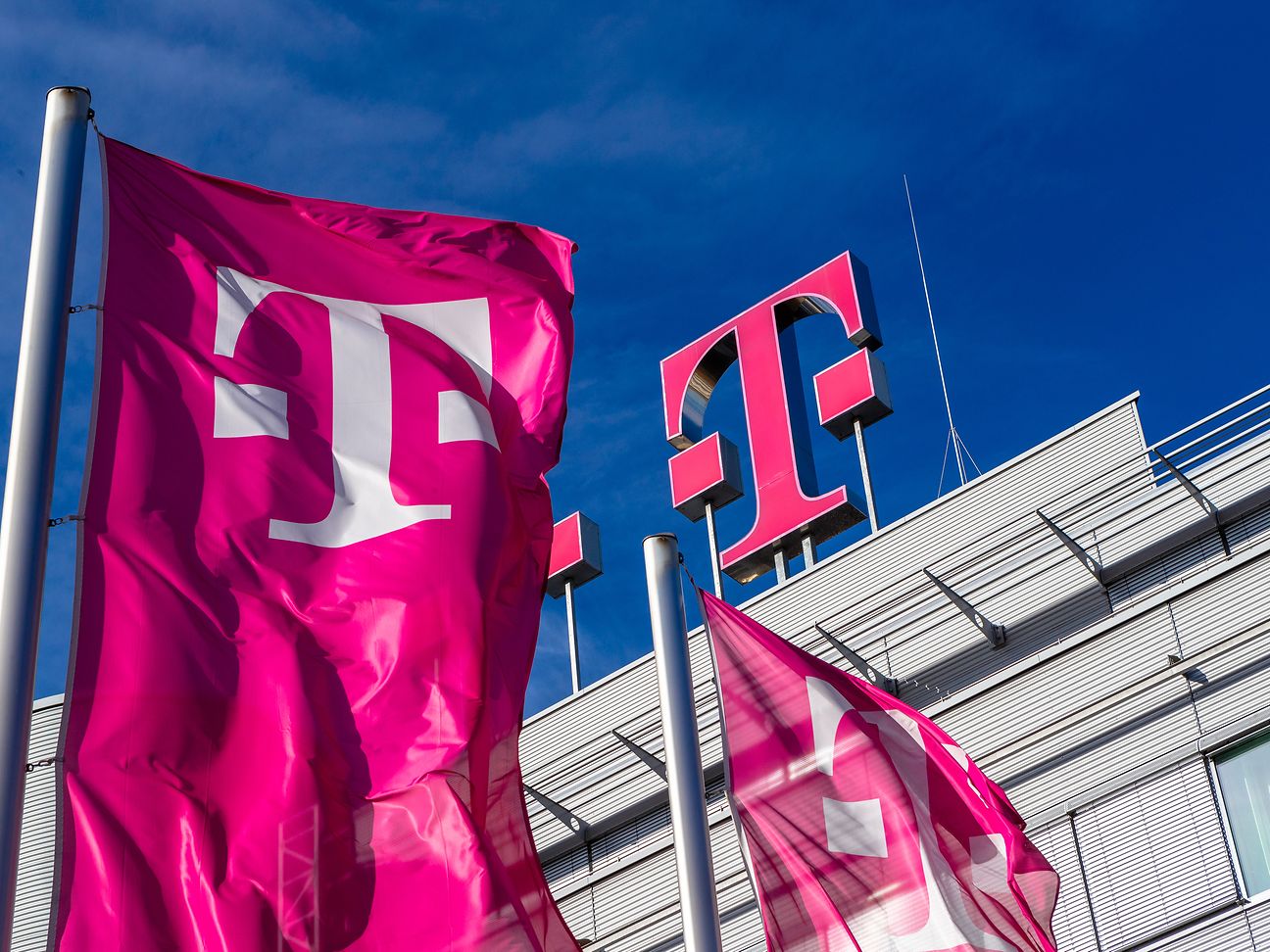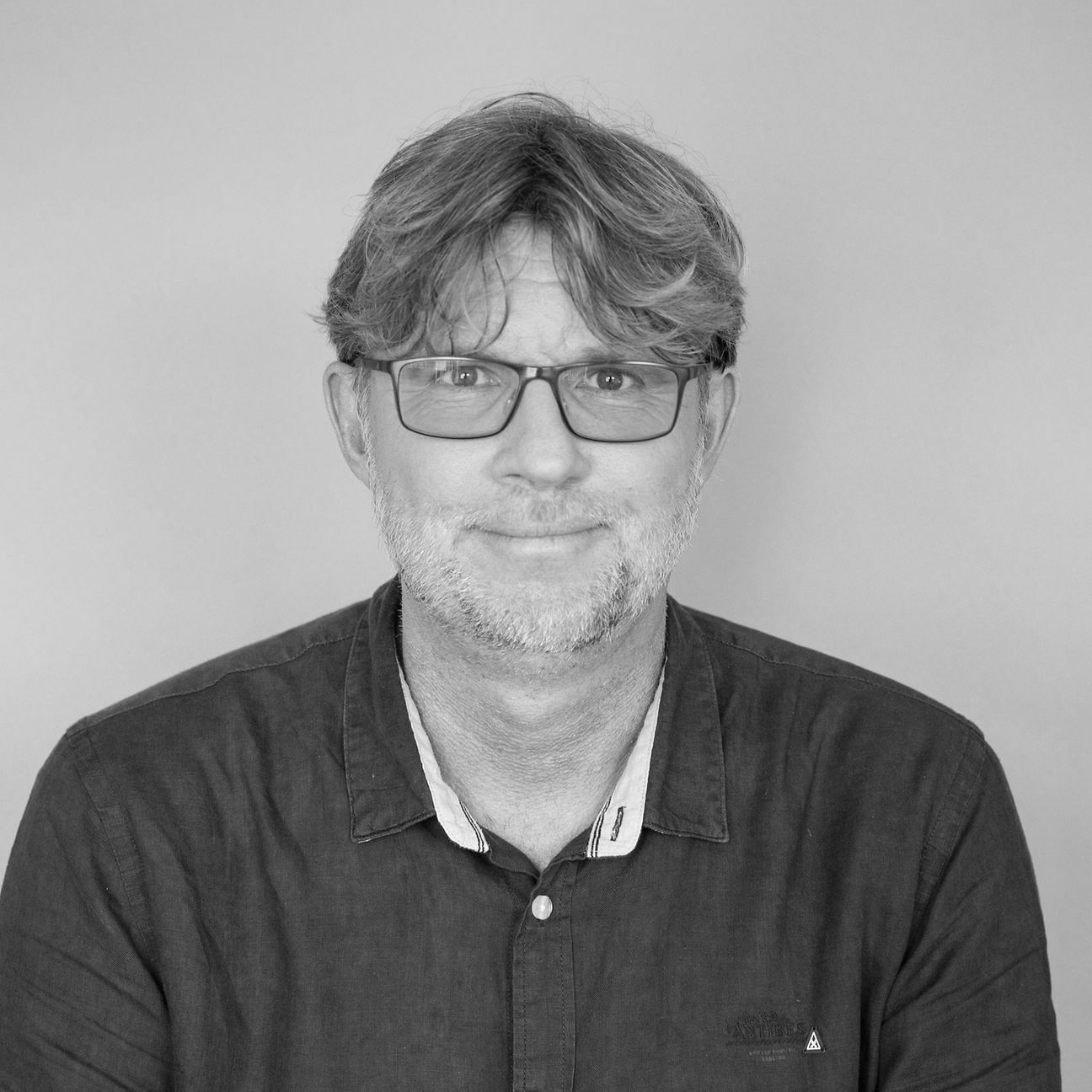

25 years of Deutsche Telekom AG – from state-owned enterprise to stock corporation
With its privatization a quarter-century ago, Deutsche Telekom kicked off its successful evolution into an international IT and telecommunications corporation.
January 1, 1995 was a key date for Deutsche Telekom. That day, 25 years ago, the state-owned Deutsche Bundespost Telekom – a special fund of the German federal government – officially became a publicly listed stock corporation: Deutsche Telekom AG. The legal foundation for this privatization was created by the "German Law on the Reorganization of Posts and Telecommunications”, the so-called Postreform II. The previous Postreform I, which passed in 1989, divided the former Deutsche Bundespost into the divisions Post, Postbank, and Telekom. Considering economic and technological development over the years, the transformation of these business divisions into stock corporations and their ensuing privatization was the next logical step.
Acting in a highly dynamic market
In the 1990s, Deutsche Telekom found itself in a highly dynamic market. The mobile communications business grew at a breathtaking pace, built on GSM, the first European mobile standard, and – from 1992 – driven by strong competition between the two providers Deutsche Telekom and Mannesmann Mobilfunk (now Vodafone). The triumphal procession of internet technologies and the associated applications began in the mid-1990s. Parallel to the evolution of these and many other technologies and application areas, competition continued to intensify in the liberalized telecommunications market, posing major challenges to all players. As the market and technology leader, Deutsche Telekom had to align its business strategies and processes consistently to the requirements of domestic – and increasingly international – competition. A crucial element of this business orientation was access to international capital markets and an increase in capital through a stock exchange listing. For Deutsche Telekom, this was also a crucial prerequisite for its international expansion and the development of its business beyond Germany's borders.
Telekom IPO in November 1996
Deutsche Telekom AG's IPO took place on November 18, 1996, less than two years after the founding of the young stock corporation. A second tranche was issued in late June 1999, followed by a third in June 2000. Deutsche Telekom raised the equivalent of around 21 billion euros from the first two share issues, while the proceeds from the third issue – around 13 billion euros – were paid into Germany's federal budget. Deutsche Telekom's share price hit its all-time high of 103.50 euros in March 2000. In the following years, the stock – like the bulk of technology and telecommunications shares, by the way – dropped significantly. It reached its all-time low of 7.71 euros in June 2012. Deutsche Telekom's shareholders benefit from reliable dividend payments; Deutsche Telekom shares have long been considered one of the safest and most stable in the DAX and Euro-Stoxx indices.
Over the past ten years, T-shares have developed much better than the stocks of most European competitors, the result of a clear financial strategy focused on solidity. Deutsche Telekom won capital market players over by consistently meeting or surpassing its declared business targets. With a market value of around 75 billion euros, Deutsche Telekom is Europe's most valuable telecoms company.
Private investors of the first hour, who kept their loyalty shares and consistently reinvested their dividends in T-shares, have earned a return of more 150 percent on their initial investment by the end of 2019.
Development Program for Eastern Germany is a challenge
On the German telecommunications market, Deutsche Telekom has successfully mastered a number of significant challenges over the past decades. After German reunification, the company launched its Development Program for Eastern Germany, which turned the former East Germany's dilapidated infrastructure into the most modern telecommunications network in the world. Deutsche Telekom invested the equivalent of 25 billion euros in the program, which was completed ahead of schedule in 1997. The company began converting its telecommunications network to digital technology throughout Germany at an early stage. In the meantime, the next technological step, conversion of the network to the future-oriented IP (Internet Protocol) technology, is nearly complete. Deutsche Telekom's broadband network and its mobile communications infrastructure have repeatedly won best in class in multiple tests by independent examiners.
In the 25 years since its founding as a stock corporation, Deutsche Telekom has established itself as one of the leading telecommunications corporations on the global market. In comparison: in the year of its privatization, the Group generated revenue equivalent to around 33 billion euros – in the 2018 financial year, revenue amounted to 75.7 billion euros. Starting as a national provider of telecommunications services, Deutsche Telekom has now grown to a globally active service provider with subsidiaries and associates in more than 50 countries around the world. The countries in Central and Eastern Europe are a focus of international activities. In addition, T-Mobile USA has been a key to the Deutsche Telekom Group's success for many years now. Currently, Deutsche Telekom generates 70 percent of its net revenue through subsidiaries and associates outside Germany. The company's internationalization is also reflected clearly in its changed workforce structure. In 1995, the Deutsche Telekom had around 200,000 employees in Germany. Today, Deutsche Telekom Group companies employ 220,000 people worldwide.
Europe's most valuable telecommunications brand
Deutsche Telekom's corporate structure evolved continually over two and a half decades. With its four-pillar strategy, Deutsche Telekom and its units T-Com (fixed-line network), T-Mobile (mobile communications), T-Online (internet), and
Deutsche Telekom has had to master several critical developments and challenges over the past 25 years. In addition to a phone tapping scandal, they included cases of doping on the Team Telekom cycling team. Deutsche Telekom's third share issue was followed by protracted legal battles with shareholders. As a member of the Toll Collect consortium, which had built and operated a system for collecting truck tolls, Deutsche Telekom had to negotiate arbitration proceedings demanded by Germany's Federal Ministry of Transport.
As one of Germany's largest companies and a leader in the international telecommunications sector, Deutsche Telekom has made it clear from the start that it takes its responsibilities to society seriously. Over its entire 25-year existence as a stock corporation, Deutsche Telekom has repeatedly made commitments to societal projects and continues to do so. They include both local initiatives and involvement in nationwide programs like disabled sports and TelefonSeelsorge, a national crisis hotline.
5G enters the stage
Over the past 25 years, Deutsche Telekom has successfully mastered the rapid technological transformation of information and telecommunications technology and has made key contributions to shaping this transformation in many areas. It is already apparent that this transformation will continue at an increasing speed. Key technologies like 5G – the next generation of mobile communications technology – are already on the starting blocks. T-Mobile USA recently began building a nationwide 5G network in the United States. In its home market of Germany, as well, Deutsche Telekom is basing its network planning on contiguous areas. By the end of 2020, Deutsche Telekom will be operating more than 1,500 5G antennas. All 16 state capitals will be given priority in the rollout. New technologies will raise connectivity to the next level: The Internet of Things is becoming reality. Applications like augmented reality and artificial intelligence will enter the mass market over the next decade, fomenting permanent changes to society and business. For the era after 2030, experts expect that new technologies such as quantum computing and 6G will open up entirely new possibilities in IT and telecommunications. Deutsche Telekom's clear objective is to remain among the leading providers on the market and to create the best possible customer experiences. One thing is already clear: in contrast to the previous 25 years, mere access to new technologies is no longer enough for market success; in the next 25 years, the customer experience will become the decisive USP for the market.
About Deutsche Telekom: Company profile


